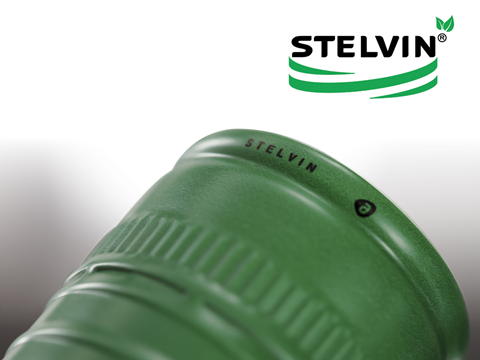
Amcor Capsules claims to have reduced the carbon footprint of its STELVIN aluminium screw cap range by up to 35% using low-carbon primary aluminium and up to 46% recyclate during its manufacture.
Designed for wine and spirit brands, the STELVIN screw cap and all 30H60 caps produced in Europe, North America, and South America are all thought to emit less carbon compared to the standard screw cap produced with European aluminium sheets – a development credited to its implementation of certified, independently verified low-carbon and recycled aluminium.
These improvements have been rolled out amongst Amcor Capsules’ global range and contribute to the company’s TRANSPARENCE sustainability programme, which aims to support the wine and spirits industry.
The company has also unveiled a PVDC-free liner, STELVIN INSIDE, in a bid to help brands pursue their sustainability goals. Amcor aspires to reach its own goal of achieving net zero emissions by 2050 in line with the SBTi, emphasizing its commitment to reducing its products’ environmental impact and increasing its use of recycled content.
“We were the market pioneers in 1964 with the launch of the first screw cap for wine,” explains Yannick Magnon, general manager of Amcor Capsules. “Since then, STELVIN has been recognized and praised by winemakers worldwide as setting the standard for quality and as one of the most sustainable capping solutions in the industry. We always aim for the best for our customers, and we wanted to go further to help them achieve their own sustainability goals.”
Amcor Capsules and Aludium have joined forces and developed what is claimed to be a certified, independently verified ‘low-carbon’ aluminium product for screw cap applications. It is thought to reduce the carbon footprint of primary aluminium sold in Europe by over 50%.
Novelis also reports that recycled aluminium constituted an average of 61% of its total inputs in the fiscal year ending 31st March 2023 – apparently reaching the highest percentage of recycled content in the aluminium flat rolled products industry.
If you liked this article, you might also enjoy:
The L’Oréal approach to packaging sustainability
What steps is Apple taking to make its packaging more sustainable?
How did Brazil achieve its 100% aluminium can recycling rate – and can it be replicated in the EU?
Experts have their say on the EU’s Packaging and Packaging Waste Directive revisions
Also, if you’re interested in packaging sustainability, you will want to attend our Sustainable Packaging Summit in Amsterdam on 14-15 November. The Summit brings together leaders and pioneers from across the industry to align strategically, learn, network, and create a critical mass to accelerate change. You can learn more by clicking here, and you can buy a ticket to attend here.














No comments yet